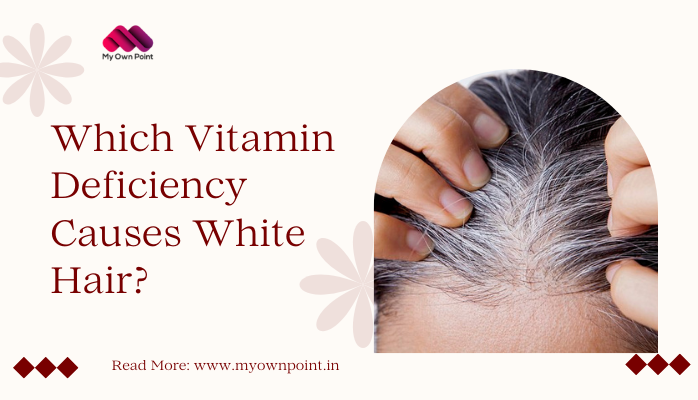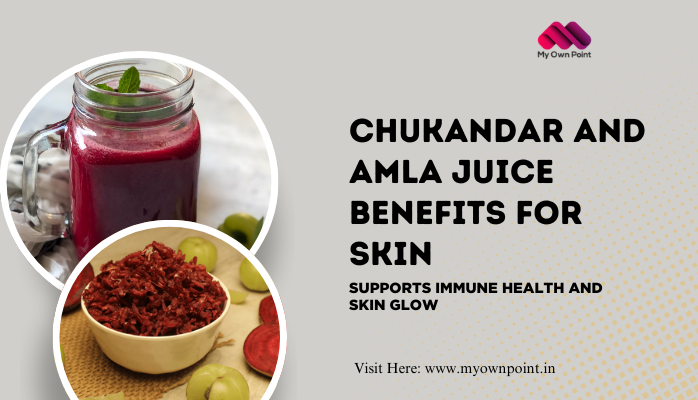The color of your hair is determined by melanin, a pigment produced by melanocytes in the hair follicles. Over time, the production of melanin decreases, leading to gray or white hair. Also certain vitamin deficiencies that cause white hair. A normal human body has about 5 million hair follicles, which produce hair and skin pigments over time.
However, some changes can help slow the greying process and keep your natural colour longer. Your ethnicity and genetics will also affect how quickly your hair turns grey. Research shows that most people notice grey hair in their late forties. What starts as a few grey strands can soon spread. Dyeing your hair or taking certain nutrients can help slow down greying and provide emotional relief. People in their early thirties often struggle with prematurely grey hair and may try various prevention methods.
This article explains common reasons, like stress and anxiety, that can cause grey hair in people under twenty and how to avoid this issue.
Also Read: Best Homemade Hair Masks for Repairing Damaged Hair
5 Vitamin Deficiencies That Cause White Hair
1. Vitamin B12 Deficiency
Vitamin B12, also known as cobalamin, plays an essential role in various bodily functions, including the production of red blood cells, nerve function, and DNA synthesis. It also plays a crucial role in the health of hair follicles. A deficiency in vitamin B12 can affect melanin production, which can, in turn, lead to premature graying and even white hair.
How Vitamin B12 Deficiency Causes White Hair:
- Melanin Production Disruption: Vitamin B12 helps make melanin, the pigment that gives hair its color. Without enough vitamin B12, melanin production decreases, which can cause hair to turn grey or white.
- Impaired Hair Follicle Health: It also supports healthy red blood cells that carry oxygen and nutrients to hair follicles. A B12 deficiency can limit the nourishment of these follicles, affecting melanin production.
- Anaemia and Hair Loss: A lack of vitamin B12 often leads to anaemia, with low red blood cell levels. Anaemia can reduce the oxygen supply to hair follicles, causing hair to lose colour and become brittle.
Signs of Vitamin B12 Deficiency:
- Fatigue and weakness
- Shortness of breath
- Pale skin
- Tingling or numbness in hands and feet
- Memory problems or difficulty concentrating
- Premature graying or white hair
How to Address Vitamin B12 Deficiency:
- Consume B12-rich foods such as meat, fish, eggs, dairy products, and fortified cereals. Vegans and vegetarians are more at risk of B12 deficiency and may need to take supplements.
- Vitamin B12 supplements or injections may be necessary in severe cases. Always consult with a healthcare provider before starting supplementation.
2. Vitamin D Deficiency
Vitamin D is important for healthy hair. It helps control how hair grows and keeps hair follicles healthy. Not getting enough vitamin D can lead to hair loss, early greying, and eventually white hair.
How Vitamin D Deficiency Causes White Hair:
- Hair Follicle Regeneration: Vitamin D helps activate hair follicles and promotes hair growth. Low vitamin D levels can slow hair regeneration, causing early greying and thinning.
- Melanin Production: It supports healthy skin and scalp and is essential for hair growth. Without enough vitamin D, melanin production in hair follicles may decrease, leading to early greying.
- Alopecia Areata: A lack of vitamin D is connected to autoimmune issues like alopecia areata, which causes patchy hair loss and can lead to premature greying or white hair.
Signs of Vitamin D Deficiency:
- Fatigue or low energy
- Bone pain or weakness
- Depression or mood swings
- Hair thinning or excessive shedding
- Dry, flaky skin
- White or graying hair in younger individuals
How to Address Vitamin D Deficiency:
- Spend time in sunlight, as UV rays trigger vitamin D synthesis in the skin.
- Include vitamin D-rich foods like fatty fish (salmon, mackerel), egg yolks, fortified dairy products, and mushrooms in your diet.
- If you have low levels of vitamin D, consider supplements, but always consult a healthcare professional for the proper dosage.
Also Read: 10 Niacinamide Serum Benefits For Skin Pigmentation
3. Vitamin E Deficiency
Vitamin E is a potent antioxidant that protects cells, including hair cells, from damage. It promotes good blood flow in the scalp and keeps hair follicles healthy. Without enough vitamin E, oxidative stress can harm hair follicles and reduce melanin production, causing premature greying or white hair.
How Vitamin E Deficiency Causes White Hair:
- Oxidative Stress: It protects hair follicles from damage caused by free radicals. Without enough vitamin E, free radicals can harm the cells that make melanin in hair follicles.
- Impaired Blood Circulation: It helps improve blood circulation. Poor circulation can limit the nutrients and oxygen hair follicles receive, affecting melanin production and speeding up greying.
- Scalp Health: Not enough vitamin E can result in a dry, flaky scalp and unhealthy hair, leading to greying.
Signs of Vitamin E Deficiency:
- Dry, flaky skin or scalp
- Hair thinning or loss
- Increased oxidative stress (skin aging, wrinkles)
- Weak, brittle hair
- Premature graying
How to Address Vitamin E Deficiency:
- Include vitamin E-rich foods such as almonds, sunflower seeds, spinach, avocado, and vegetable oils (olive oil, sunflower oil) in your diet.
- Topical application of vitamin E oil can help improve scalp health and prevent hair damage caused by oxidative stress.
4. Vitamin B9 (Folate) Deficiency
Folate, or vitamin B9, is essential for cell growth and repair. It helps keep hair follicles healthy, supports hair cell regeneration, and aids melanin production. Without enough folate, hair can grow early and become unhealthy.
How Vitamin B9 Deficiency Causes White Hair:
- Cell Regeneration: Folate helps make red blood cells and DNA, which are important for hair growth. If you don’t get enough folate, it can harm these processes, affecting hair follicles and causing greying.
- Melanin Deficiency: Folate is needed to produce amino acids that create melanin. Low folate levels can reduce melanin production, resulting in premature greying and white hair.
Signs of Vitamin B9 Deficiency:
- Fatigue and weakness
- Mouth sores or ulcers
- Pale skin
- Memory problems
- Shortness of breath
- Premature graying or white hair
How to Address Vitamin B9 Deficiency:
- Include folate-rich foods such as leafy greens, lentils, beans, citrus fruits, and avocados in your diet.
- Folate supplements are also available, but it is best to consult with a healthcare provider for guidance on the proper dosage.
Also Read: 10 Amazing Cornstarch Benefits for Skin You Didn’t Know About
5. Copper Deficiency
Copper is considered an important mineral that plays a critical role in the melanogenic processes. It’s necessary for the enzyme synthesis of melanin cells, known as tyrosinase. It has been speculated that a lack of copper in the body leads to loss of melanin production and cellular pigment, which in turn leads to the greying of hair.
- Melanin Synthesis—Copper Helps In Tyrosinase Enzyme Activation: The inclusion of tyrosinase, an important factor for copper, shows an instance of adequate supplementation. Without it, copper melanin deposition, which means the change in hair colour, is impossible.
- Hair Follicles Nutrition—Copper Additionally Aids Melanin Cells and Connective Tissue: Copper fused with CT provides stability and nourishment to the hair components; once a copper deficiency sets in, it begins to penetrate the basic cell structure of hair, leading to hair color baldness.
Copper Deficiency Symptoms:
- White or greyish skin pigmentation
- Suffering from Alopecia and baldness
- Suffering from Anemia or weakness
- Experiencing joint or Bone pain
Conclusion
Premature greying or white hair can happen for several reasons, like ageing, genetics, and not getting enough vitamins. To avoid vitamin deficiencies, eat a balanced diet full of essential nutrients, and talk to a healthcare provider if you have a deficiency. Sometimes, vitamin supplements may be needed, but it’s best to get professional advice to address the problem correctly. Providing your body with the right vitamins and minerals can keep your natural hair colour longer and support overall health.
Also Read: Transform Your Anti-Aging Routine with Blue Light Skincare




